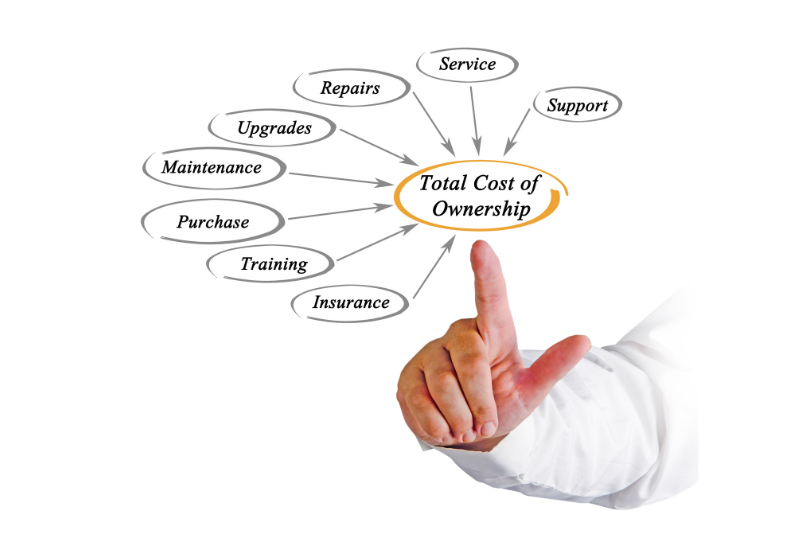As the logistics and material handling industry continues to evolve, companies are increasingly looking to optimize their operations for better efficiency and lower operational costs. One such area of improvement is the transition from traditional lead-acid batteries to lithium-ion (Li-ion) batteries in forklifts, aerial work platform and golf cart industry. While the initial capital expenditure for lithium batteries may be a concern, the long-term financial and operational benefits provide a compelling case for upgrading. This article explores the cost implications of adopting lithium-ion batteries, with a focus on long-term savings and efficiency improvements in forklift operations.
1. Initial Capital Outlay
The switch to lithium-ion batteries in forklifts and golf carts involves a higher upfront cost compared to lead-acid alternatives. However, this initial expense is offset by the significant reduction in the total cost of ownership (TCO) over the lifespan of the batteries. Businesses must evaluate the overall lifecycle costs, including reduced maintenance requirements, increased efficiency, and extended battery lifespan, to fully understand the financial advantages. For a lithium battery to perform the same task, its capacity in ampere-hours (Ah) may be lower compared to a lead-acid counterpart, which can further reduce the initial cost. Additionally, with the price of lithium iron phosphate fell in the past two years, the price of LiFePO4 lithium batteries also decreased in forklifts and aerial work platform industry. So the initial capital expenditure is not much higher.
2. Long-Term Cost Savings and Efficiency Gains
Prolonged Battery Life: Lithium-ion batteries have a lifespan that can extend up to three times longer than lead-acid batteries. This huge increase in service life results in fewer replacements over time, reducing overall capital expenditure and lowering the total cost of ownership.
Superior Energy Efficiency: Lithium batteries exhibit a 30% improvement in charging efficiency compared to lead-acid batteries. Thanks to its lower internal resistance, lithium battery generates less heat during charging, reducing energy loss and contributing to lower energy bills for manufacturers. Additionally, the enhanced charging efficiency of lithium-ion batteries leads to a smaller carbon footprint, aligning with sustainable goals.
Increased Productivity: One of the most significant advantages of lithium-ion batteries is their rapid recharge capability. A forklift lithium-ion battery can be fully charged in as little as 1.5 to 2 hours, compared to the 8-hour charging cycle of lead-acid batteries. This faster recharge time minimizes operational downtime, ensuring that forklifts and golf carts are available for use more frequently throughout the day, thus boosting overall productivity.
Reduced Maintenance and Operational Costs: Lithium-ion batteries require minimal maintenance. Unlike lead-acid forklift batteries, they do not need routine water topping or regular equalization charging. The absence of such maintenance requirements significantly reduces labor costs and downtime associated with battery upkeep, which contributes to further cost savings.
Optimized Space Utilization: Lithium-ion batteries allow for opportunity charging during breaks and shifts, enabling a single battery to operate across multiple shifts without needing a dedicated battery charge. This flexibility eliminates the need for a separate battery room, freeing up valuable warehouse space that can be used for other purposes. This space optimization can further enhance the return on investment (ROI) by improving the utilization of existing facility space.
3. Enhanced Safety and Reliability
In addition to the operational and financial benefits, lithium-ion forklift batteries offer superior safety features compared to lead-acid batteries. Lithium batteries are inherently safer, with fewer risks of leakage, acid spills, and toxic fumes. Their maintenance-free nature further reduces the chances of operator error and the associated safety hazards. Recent studies and data from the Occupational Safety and Health Administration (OSHA) support the assertion that lithium-ion batteries are a safer alternative, contributing to a safer working environment and reduced business liability risks.
A Strategic Investment for the Future
While the initial investment in lithium-ion batteries is higher than that of traditional lead-acid forklift batteries, the long-term financial and operational benefits far outweigh the initial costs. Reduced energy consumption, lower maintenance costs, enhanced safety, and improved productivity all contribute to a significantly lower total cost of ownership. Since the foundation of ENEROC, we have been determined to deliver high-quality, efficient and environmentally friendly lithium battery solutions that help companies transition to greener, more sustainable operations. Whether you are in the construction machinery industry such as forklifts and aerial work platforms, or the golf cart industry, upgrading to lithium batteries is not just a financial decision, but a strategic investment that can lead to substantial cost savings, improved operational performance, and greater sustainability in the long run. As businesses look to remain competitive, embracing lithium-ion technology represents a smart, forward-thinking move that can yield impressive returns on investment.
Post time: Dec-07-2024

